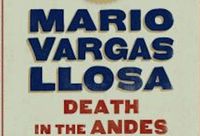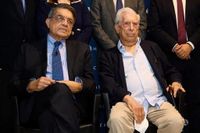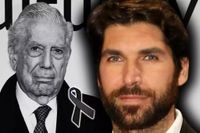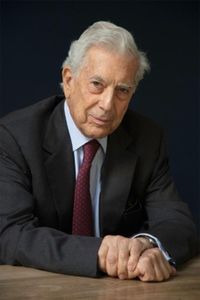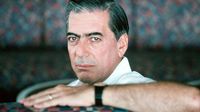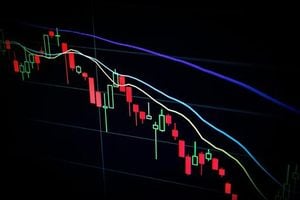Mario Vargas Llosa, the last titan of the Latin American literary boom, passed away on April 13, 2025, at the age of 89 in his hometown of Lima, Peru. His death marks the end of an era for Latin American literature, as Vargas Llosa was not only a Nobel Prize laureate but also a towering figure who shaped the literary landscape of the 20th century.
Vargas Llosa's literary journey began early in his life. Born in 1936 to a middle-class family in Arequipa, he faced a tumultuous childhood after his parents separated when he was just an infant. He moved to Cochabamba, Bolivia, before returning to Peru at the age of ten. By sixteen, he had penned his first play, The Escape of the Inca. His first novel, The Time of the Hero, published in 1962, drew on his experiences as a cadet at the Leoncio Prado Military Academy and was an incisive critique of corruption and abuse within the Peruvian military establishment.
With this work, Vargas Llosa won the Seix Barral’s Biblioteca Breve prize, making him a notable figure in the literary world at just 26 years old. His vivid imagery and incisive prose captured the brutality of military life, earning him both acclaim and condemnation; the military academy famously burned 1,000 copies of his novel. The book's impact was profound, as it revealed the darker sides of Peruvian society, setting the tone for much of his later work.
In the years that followed, Vargas Llosa continued to produce remarkable literature, including The Green House (1966) and Conversation in the Cathedral (1969). The former explored the complexities of life surrounding a brothel in the Peruvian jungle, while the latter delved into the corruption and oppression of the Peruvian dictatorship under Manuel Odría. His ability to intertwine personal stories with broader social critiques became a hallmark of his writing.
Vargas Llosa's literary prowess secured his place in the Latin American Boom, a literary movement that included contemporaries like Gabriel García Márquez and Julio Cortázar. Together, these authors broke traditional narrative forms and introduced new perspectives on Latin American culture, garnering international recognition. Vargas Llosa's contributions were particularly significant, as he combined political themes with innovative narrative techniques, drawing readers into the complexities of his characters' lives.
Despite his literary success, Vargas Llosa's life was not without controversy. He initially supported leftist movements in Latin America but became disillusioned with Fidel Castro's regime after the imprisonment of poet Heberto Padilla, leading him to adopt a more conservative stance. His political journey culminated in an unsuccessful bid for the presidency of Peru in 1990, where he campaigned with a center-right platform that aimed to address the country's economic challenges.
In addition to his literary achievements, Vargas Llosa's personal life was equally colorful. He famously had a tumultuous friendship with García Márquez, which soured into a physical altercation in 1976, reportedly over differing views on Cuba and personal matters. Despite this, the two reconciled in 2007, illustrating the complexities of their relationship.
Following his death, tributes poured in from around the world. One of the most unexpected came from bullfighter Cayetano Rivera, who revealed a close friendship with Vargas Llosa that had remained largely unknown. Rivera shared a heartfelt message on social media, expressing gratitude for their bond and reflecting on the profound impact Vargas Llosa had on his life. The two had met over a decade ago, with Vargas Llosa developing a fascination for bullfighting and Rivera's elegant style in the ring.
The writer's family confirmed his passing through an official statement, emphasizing their desire for privacy in mourning. They noted that Vargas Llosa wished for an intimate farewell, free from public ceremonies, and that his remains would be cremated.
Vargas Llosa's legacy is not limited to his novels alone; his impact on Latin American culture and politics is undeniable. His works often tackled themes of power, corruption, and the human condition, resonating with readers across generations. His ability to explore the depths of society's flaws while maintaining a poetic narrative style set him apart from his contemporaries.
His novels, including The Feast of the Goat (2000), which scrutinized the dictatorship of Rafael Trujillo in the Dominican Republic, and The Dream of the Celt (2012), which addressed historical injustices in Latin America, exemplify his commitment to using literature as a tool for social commentary. Vargas Llosa's work was characterized by its rich language and compelling storytelling, earning him accolades worldwide.
As the last of the literary giants from the Latin American Boom, Vargas Llosa's passing signifies the closing of a chapter in literary history. His influence will undoubtedly continue to inspire future generations of writers and readers alike. In a poignant reflection on his legacy, Vargas Llosa once stated during a lecture at Casa de América in Madrid, “It seems it will fall to me to turn off the light and close the door.” With his death, that light has dimmed, but the impact of his words will endure.
In the wake of his passing, the literary world is left to ponder how many more stories remain untold and how many more connections exist between the great figures of literature. Mario Vargas Llosa may be gone, but his work and the conversations he sparked will continue to resonate throughout the literary landscape.
